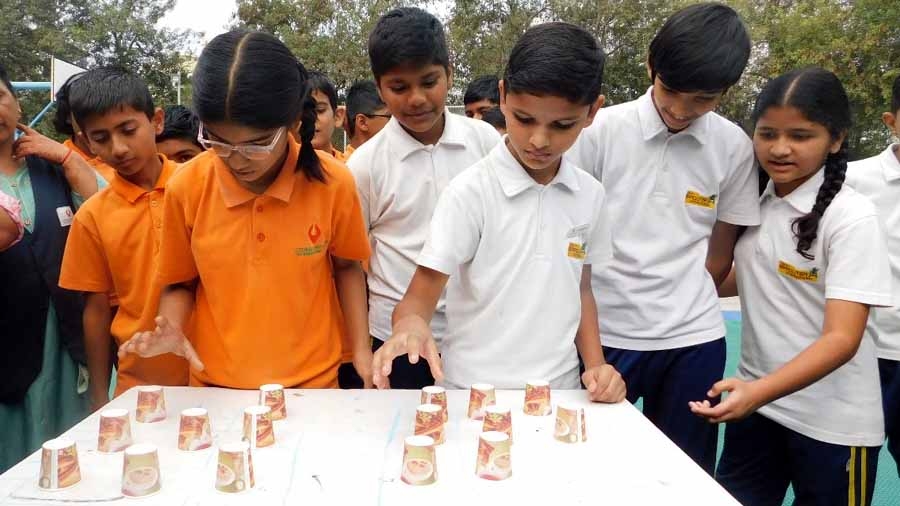Teacher Well-being: As an educator, the well-being of your students is undoubtedly one of your top priorities. But what about your own well-being? Teacher burnout has become an all-too-common issue, impacting not only your health but also your ability to engage and inspire your students. When teachers are overwhelmed, stressed, and drained, it becomes harder to provide the high-quality education that every student deserves.
In this article, we’ll explore simple, effective practices that can help educators avoid burnout and maintain their energy throughout the school year. By focusing on teacher well-being, you’ll not only feel better but also create a more vibrant and positive classroom atmosphere. 🌱
Why Teacher Well-being Matters 💖
Being a teacher is a rewarding but demanding profession. Between preparing lesson plans, grading assignments, managing classroom behavior, and addressing students’ emotional needs, educators often find themselves stretched thin. Unfortunately, this stress can lead to burnout, which affects your physical and emotional health and can also influence how you connect with your students.
Teacher well-being is not just about staying healthy—it’s about staying mentally and emotionally balanced to be the best version of yourself for your students. When you feel good, you bring more energy, enthusiasm, and focus into the classroom. Your emotional health is crucial for creating a positive learning environment where students thrive. 🌟
Simple Practices to Avoid Burnout and Boost Teacher Energy 💪
1. Set Boundaries and Learn to Say No 🚫
As an educator, it’s easy to overcommit—whether it’s to extra tasks, meetings, or social events. However, setting clear boundaries is essential to protect your time and energy. It’s okay to say no when you’re feeling overwhelmed or when taking on additional work could jeopardize your well-being.
Tip: Prioritize your tasks and focus on what truly aligns with your role as an educator. Don’t be afraid to delegate or turn down requests that aren’t critical to your responsibilities.
2. Practice Mindfulness and Meditation 🧘♀
Mindfulness and meditation are powerful tools that help reduce stress and increase focus. By taking just 5–10 minutes each day to practice mindfulness or meditate, you can clear your mind, re-center your thoughts, and recharge your emotional energy.
Tip: Start your day with a short meditation session or use deep-breathing techniques during breaks. A clear and calm mind will help you approach your teaching with more patience and positivity. 🌸

3. Make Time for Physical Exercise 🏃♂
Exercise is a natural stress reliever and energy booster. Whether it’s a quick walk, a jog, or a yoga session, physical activity can improve your mood and keep you feeling energized throughout the day. As a busy educator, it’s important to integrate exercise into your routine, even if it’s just for a few minutes.
Tip: Set aside 15–30 minutes daily for physical activity. You can even take a walk during lunch or after school to clear your mind and re-energize for the next task. 💪
4. Build a Support Network 👩🏫👨🏫
Teaching can feel isolating, especially when you’re facing challenges in the classroom. Having a support network of fellow educators, friends, or family members can make all the difference in your mental health. Share your experiences, vent when necessary, and celebrate your wins together.
Tip: Join a teacher’s group, engage with your colleagues, or even find an online community where you can share resources and provide emotional support. You don’t have to go it alone! 🤝
5. Focus on Positive Self-talk 🗣
Self-talk is the inner dialogue we have with ourselves. It’s essential to maintain a positive mindset and avoid falling into negative thinking patterns. As an educator, you may face tough days, but it’s crucial to remind yourself of your strengths and successes.
Tip: Practice affirmations and remind yourself of your accomplishments. For example, “I am a dedicated educator,” or “I make a positive impact on my students’ lives.” This simple practice can help shift your mindset and reduce feelings of burnout. 🌞
6. Engage in Creative Outlets 🎨
Sometimes, the best way to relieve stress is to engage in creative activities outside of teaching. Whether it’s painting, writing, gardening, or any other hobby, creative outlets give you a chance to express yourself and disconnect from work-related stress.
Tip: Dedicate time each week to a hobby you love. It will allow you to recharge, improve your mood, and return to the classroom with a fresh perspective. 🎶
7. Prioritize Rest and Sleep 😴
Lack of sleep can seriously affect your well-being, mood, and productivity. Teachers often work late grading papers or planning lessons, but getting enough sleep is essential for staying energized and focused.
Tip: Aim for at least 7-8 hours of sleep each night. Set a bedtime routine that helps you unwind and prepare for a restful night’s sleep. A well-rested mind is more creative, patient, and efficient. 🌙
The Power of Teacher Well-being & Self-care: The Ripple Effect 🌍
Taking care of yourself isn’t selfish—it’s essential. When you focus on your well-being, it not only benefits you but also positively impacts your students. Teachers who prioritize their health, set boundaries, and engage in self-care are better equipped to handle the demands of their job with resilience and energy. 🌟
Your energy and attitude in the classroom set the tone for your students’ learning environment. By practicing self-care, you’re creating a more positive and supportive atmosphere, which encourages students to engage, learn, and grow.
Conclusion: Thrive as an Educator 🌱
As an educator, your well-being is vital not only to your own happiness but also to your effectiveness in the classroom. By implementing simple practices like mindfulness, exercise, setting boundaries, and engaging in creative outlets, you can avoid burnout and maintain the energy needed to inspire and guide your students.
Remember, taking care of yourself is not just important—it’s necessary for you to continue doing the important work you do. Take a step back, breathe, and prioritize your well-being. You deserve it! 🌸
Download my free E-book for mental well-being.
Book your 1-1 session or Group session or Contact on +91-9021567678













